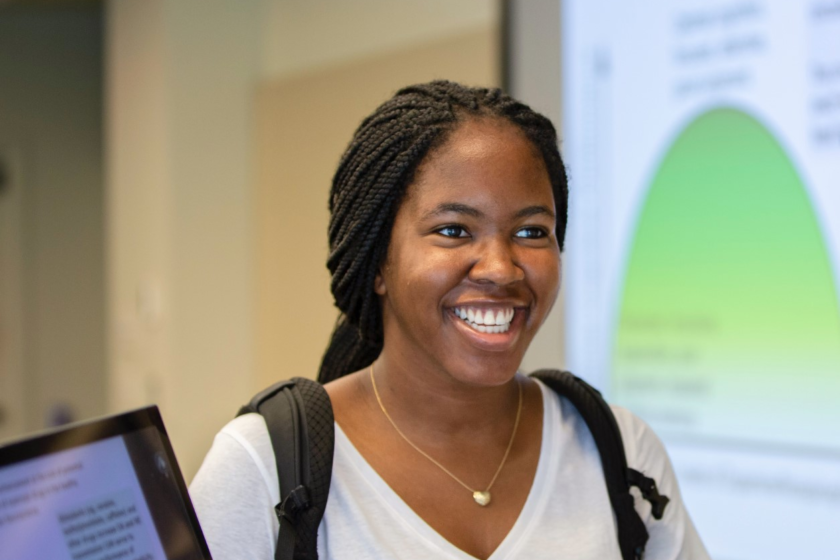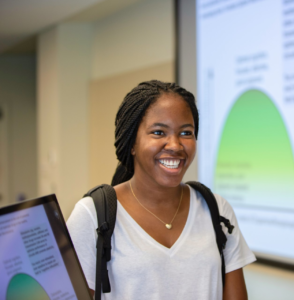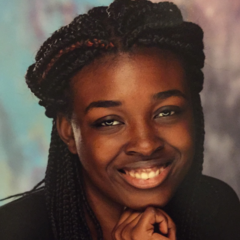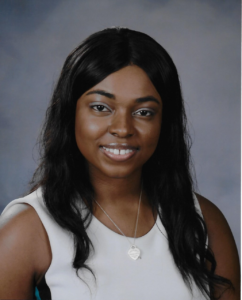
During the Center for Career Development’s Internship, Research, and Co-Op month, a panel was held to highlight the experiences of Black undergraduate students who have done research at UConn outside of STEM (science, technology, engineering, and math). Research on West Indian Immigrant Economic Attainment, Reproductive Health Disparities, and Civil Rights to Human Rights were highlighted during this panel. The panelists highlighted their experiences with picking a research topic, finding a mentor, their struggles with research, and their future plans based on the impact of their research.
Panelists:
Chinez e Osakwe is a political science and human rights major. Her research focuses on Explaining reproductive health disparities: violence in the “colorblind” institution of medicine.
e Osakwe is a political science and human rights major. Her research focuses on Explaining reproductive health disparities: violence in the “colorblind” institution of medicine.
Georgia Brown is a chemistry major. Her research focuses on From Civil rights to Human Rights: African American, Puerto Rican, & West Indian Housing Struggles in Hartford County, 1940-2019.
Shanelle Jones is a political science and human rights major. Her research focuses on West Indian immigrant economic attainment in CT (model minority vs. downward assimilation).
When thinking about how research can impact a student forever, the panelists expressed how research will help you understand the world differently, even if your goal is not to go to graduate school. Gaining writing skills, critical thinking skills, and people skills can help you grow as a person and as a student throughout your undergraduate career. Research can give you transferrable skills for future positions during and after undergraduate. The panelists discussed how their research experiences helped employers give them upper-level tasks and promotions.
When talking about their experiences as Black women scholars, ideas of imposter syndrome, burnout, and lack of representation were mentioned. Minority women occupying spaces that were not necessarily created for them can be scary, but there is a large community of people that understand that struggle.
Here is the advice that the panelists suggested for students who are considering conducting research:
- Research is a great opportunity to practice and refine writing skills. You will have to go back and rewrite because things will not seem as interesting or as important as you continue your research.
- Manage your time well. Research is a marathon, not a sprint.
- Do not let imposter syndrome get in the way of your research. All research matters, so find what you are passionate about and bounce the ideas off of a mentor or faculty member.
- Apply for everything, especially funding. The worst thing you can be told is no, but you are meant to be in different higher education spaces.
- Ask all the questions you need to. Asking questions is not a sign of a lack of intelligence, but an inquisitive mind.
- Find a mentor who is supportive of you as a person and a researcher, not just someone who will give you “tough love” because the world can be harsh.
If you are considering research, look into the Office of Undergraduate Research as a potential resource. If you are a part of the honors program, is a resource for research as well. If you want to watch the panel because you missed it, you can find it here!


